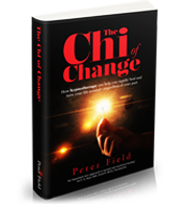PETER'S BLOGBe Inspired
POPULAR POSTS
 How Thoughts Affect Us
How Thoughts Affect Us
Perhaps the most basic of all the 'mental laws'...
 Top 10 Tips for Depression
Top 10 Tips for Depression
Depression is something seen increasingly often...
 The Feeling Mind
The Feeling Mind
When people come to visit me ...
 Living in the Present
Living in the Present
Some years back, I heard that ...
 Beginning A New Chapter
Beginning A New Chapter



